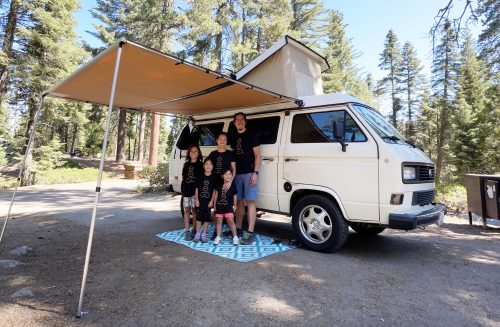I didn’t grow up in an “outdoorsy” family. But as an adult, camping and hiking have been a mainstay in my marriage, eventually becoming a family affair. Our firstborn was 7 months old when he went on his first camping trip — my husband was the only one who slept well that weekend. Now, as a family of five, we camp up and down the West Coast in a 1986 Volkswagen Vanagon. The kids have been earning national park junior ranger badges since they were toddlers.
When we camp, it’s not uncommon for us to be the only Asian family (or family of color, for that matter) in the campground. A 2021 Kampgrounds of America report found that Asians/Pacific Islanders (API) accounted for only 7% of active camper households in North America, a figure that has stayed between 5-7% since 2014. On the other hand, the percentages of Hispanic/Latinx and Black households have steadily increased since 2012, accounting for 13% and 12%, respectively.
Groups like Outdoor Asian recognize this disparity and are working to build a community of API in the outdoors. (Likewise, there’s Outdoor Afro, which seeks to celebrate and inspire Black connections and leadership in nature.) Outdoor Asian also aims to lift up stories and histories within the API community to “reflect on our ever-changing relationship to ecology and nature.” Maybe that means recognizing the time and leisure that our generation has to enjoy the outdoors that our parents did not have. Or the need to fight against issues, like climate change, that the older generation did not understand.
This “ever-changing relationship” resonated with me as the Mochi team began brainstorming for this issue’s theme of environment. My parents didn’t take my sister and me hiking or camping growing up, but my dad always had a reverence for nature and its relationship with people. Our backyard was a maze of vegetable beds and fruit trees — nature’s market of apricots, plums, and persimmons. My dad taught me that worms were…
Read the full article here





